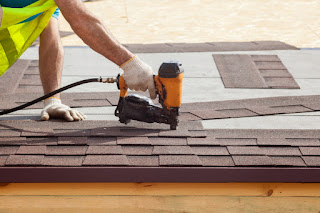How to decide whether to repair or replace your roof
How to decide whether to repair or replace your roof
You can save a lot of money in the long run if you pay attention to this vital component of your home
Your roof is one of the single biggest investments in your home’s infrastructure, and it plays a vital role in the rest of the house’s well-being. This means the decision to repair or replace it needs to be taken very seriously.
Questions to ask a roofing inspector
Roof damage can create expensive problems in a hurry. Water intrusion or obvious gaps in the attic are a major warning sign. Buckled shingles and damaged flashing could alert you in advance of problems.
The National Roofing Contractors Association recommends getting your roof inspected every spring and fall to identify potential problems. Those are the busiest times for roofers, so you’d be wise to make calls now in order to get someone out in September. A roof inspection costs about $200, but you can head off much more expensive repairs down the line. And this second opinion can make a big difference when deciding whether to spend tens of thousands of dollars replacing your roof.
Ask your inspector these specific questions to you figure out when and if you need to replace your roof:
- How long will the current roof last?
- How long will the flashing and other components last?
- What signs of deterioration are you seeing?
- How likely are additional leaks?
- How long will the flashing and other components last?
- What signs of deterioration are you seeing?
- How likely are additional leaks?
Another notable concern: How will the repairs match the existing roof? Some repairs aren’t visible at all, but visible repairs are hard to create a perfect match due to weathering. If you’re hoping to sell the home in the next few years, you may want to take this into account.
How much does a roofing job cost?
The average re-roofing job costs about $8,000, but this can vary widely based on your material type and size of home. Copper, aluminum and steel are some of the longest-lasting materials, with lifespans around 50 or 60 years, but they’ll cost more. Tiles and asphalt shingles will last about 30 years, but they cost the least of all roofing materials. However, you’ll be repairing them more frequently.
Depending on the job, you can save 25 percent by covering an existing asphalt roof with a new layer of shingles. However, some roofers say this might cause you to miss water damage on the plywood level that might otherwise have been discovered. Make sure you hire a roofer with experience in this method.
The most important element in the roofing decision, though, is a trustworthy roofer. Make sure your roofer is licensed, bonded and insured, and has a physical location in your area. Ask for references, and check them.
Ask what guarantees they place on their work. The industry standard for workmanship is between five and 10 years. Some specific manufacturers also offer much longer material warranties.
A good roofer also won’t object if you want to seek a second opinion. They know that this is a big investment and you shouldn’t rush into the decision without all the information. All these factors will add hours to your process, but if you’re going to spends thousands of dollars, they’re a wise time investment.
By Paul F. P. Pogue, Angie’s List


Comments
Post a Comment